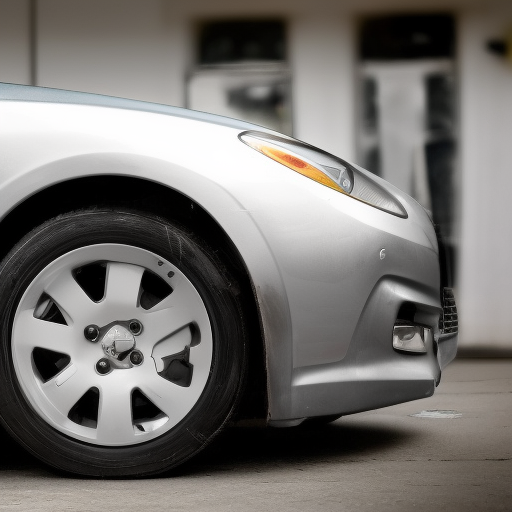Prius check engine light
You’re probably feeling pretty good about your decision to upgrade to a fuel-efficient, reliable ride. But then, suddenly, a check engine light illuminates on your dashboard. What does this mean? Should you be worried? And what should you do next?
Don’t panic! A check engine light can be triggered by a variety of issues, many of which are minor and easy to fix. In this blog post, we’ll explore the potential causes of a Prius check engine light and provide some tips on how to troubleshoot the problem.
What Does a Prius Check Engine Light Mean?
A check engine light on your Prius can indicate a variety of issues, ranging from a loose gas cap to a malfunctioning oxygen sensor. The light is designed to alert you to a problem with your vehicle’s emission control system, which helps reduce the amount of pollutants released into the air.
Common Causes of a Prius Check Engine Light
There are many potential causes of a check engine light in a Prius. Some of the most common include:
- A loose or damaged gas cap: If the gas cap on your Prius is loose or damaged, it can cause the check engine light to come on. This is because a faulty gas cap can allow fuel to evaporate, which can affect the emission control system.
- Faulty oxygen sensor: The oxygen sensor in your Prius measures the amount of oxygen in the exhaust gases, which helps the vehicle’s computer determine the correct fuel-to-air ratio. If the oxygen sensor is faulty, it can cause the check engine light to come on.
- Malfunctioning catalytic converter: The catalytic converter in your Prius helps reduce the amount of harmful pollutants released into the air. If it’s not functioning properly, it can cause the check engine light to come on.
- Failed spark plugs or ignition wires: If the spark plugs or ignition wires in your Prius are failing, it can cause the check engine light to come on. These components help ignite the fuel in the engine, so if they’re not working properly, it can affect the performance of the vehicle.
- Failed mass air flow sensor: The mass air flow sensor in your Prius measures the amount of air flowing into the engine, which helps the vehicle’s computer determine the correct fuel-to-air ratio. If the sensor is faulty, it can cause the check engine light to come on.
How to Troubleshoot a Prius Check Engine Light
If you see a check engine light on your Prius dashboard, don’t panic! There are several steps you can take to troubleshoot the problem:
- Check the gas cap: One of the easiest and most common causes of a check engine light is a loose or damaged gas cap. Start by checking to make sure the gas cap is tightened properly. If the cap is damaged, it will need to be replaced.
- Retrieve the diagnostic code: Your Prius is equipped with a diagnostic system that can help identify the cause of the check engine light. To retrieve the diagnostic code, you’ll need to use a diagnostic tool or take your vehicle to a mechanic.
- Fix the problem: Once you have the diagnostic code, you can use a repair manual or seek the help of a mechanic to fix the problem. If the issue is minor, you may be able to fix it yourself. However, if it’s a more complex issue, it’s best to seek the help of a professional.
When to Seek Professional Help
While some causes of a Prius check engine light are minor and easy to fix it’s important to remember that not all problems can be fixed by the average car owner. If you’re not comfortable troubleshooting the issue yourself, or if the problem is more complex, it’s best to seek the help of a professional mechanic.
There are a few instances where you should definitely take your Prius to a mechanic:
- If the check engine light is flashing: If the check engine light is flashing, it could indicate a serious issue that requires immediate attention. In this case, you should turn off your vehicle and have it towed to a mechanic as soon as possible.
- If the car is not driving properly: If you notice any unusual noises or performance issues while driving your Prius, it’s important to get it checked out by a mechanic. Driving a car with serious problems can be dangerous and could cause further damage to the vehicle.
- If the problem persists: If you’ve tried troubleshooting the issue and the check engine light continues to come on, it’s time to seek professional help. A mechanic will have the tools and expertise to properly diagnose and fix the problem.
Conclusion
A Prius check engine light can be triggered by a variety of issues, many of which are minor and easy to fix. If you see a check engine light on your dashboard, don’t panic! Start by checking the gas cap and retrieving the diagnostic code. If the issue is minor, you may be able to fix it yourself. However, if the problem is more complex or if the check engine light is flashing, it’s best to seek the help of a professional mechanic.
Remember, it’s important to address any issues with your Prius as soon as possible to ensure the safety and reliability of your vehicle. Don’t ignore a check engine light – take the necessary steps to troubleshoot and fix the problem to keep your Prius running smoothly.






